Happy new week dear reader,
The time for rice planting is in full swing in Kamikatsu. I think I start every post with ‘this is my favourite time of the year’ but truly rice planting season is one of my favourite seasons. The terraced rice fields are flooded and, on a clear day, the sky is reflected in the still waters. The flurry of spring and the excitement for cherry blossoms simmers and the transition to summer is marked by rice planting.
In the morning, the rice fields reflect the blue sky and dotted clouds and in the evening with the setting sun, the rice fields burst with the colours of a setting sun. It takes my breath away how land meets the sky and the mountains and forest frame the landscape of the terraced rice fields.
If you are new to this newsletter, welcome! I share stories of daily life in the Japanese countryside. I’m drawn to how people live in harmony with nature—attuned to the changing seasons and the cyclical traditions, customs, and practices of tending to the land. I’m also drawn to experiences that feel ordinary yet magical, which is perhaps more relatable no matter where you are reading this.
I admire many authors who can cultivate attention to the smallest and most simple joys, like the Book of Delights: Essays by Ross Gay. Finding delight, the theme of Ross Gay’s book, is to be observant and notice, really notice, the things that make us celebrate the world. Simply, to quote Gay, “The more stuff you love the happier you will be.”
I am also inspired by a well-known Substack & book author, The Hyphen by Emma Gannon, who will soon release a book called A Year of Nothing. Unlike Ross Gay, Emma Gannon seemed forced to switch off from chronic burnout and stress. In her private moment of retreat, she searches for joy and wisdom in the things around her—magnifying the lessons in the simple and ordinary. I look forward to reading what I imagine is Emma's very brave and vulnerable undertaking. To quote her, “In nature, things are allowed to break down and regenerate and build back up again. But as humans, it feels trickier. Life is busy. You can’t really schedule in a breakdown.”
A hidden cafe in the mountains
The reality of living in this village is that there aren’t many options for dining. We’re limited to a handful of places that have a place to sit, eat a meal, and have a drink. So of the few spots, I cherish each one deeply. In an area of Kamikatsu called Ikumi, there is a small corner store turned cafe that serves homemade curries on the weekend.
The space was originally a general/corner store or shoten opened over 100 years ago in 1906. It was frequently visited when Kamikatsu had its largest population of about 6,000 people in the late and early 60’s. Kamikatsu was previously a town known for its forestry, and people worked in the mountains to plant and sell lumber. Several decades later, the store had to be closed during a national economic recession and a painful period of steep depopulation.
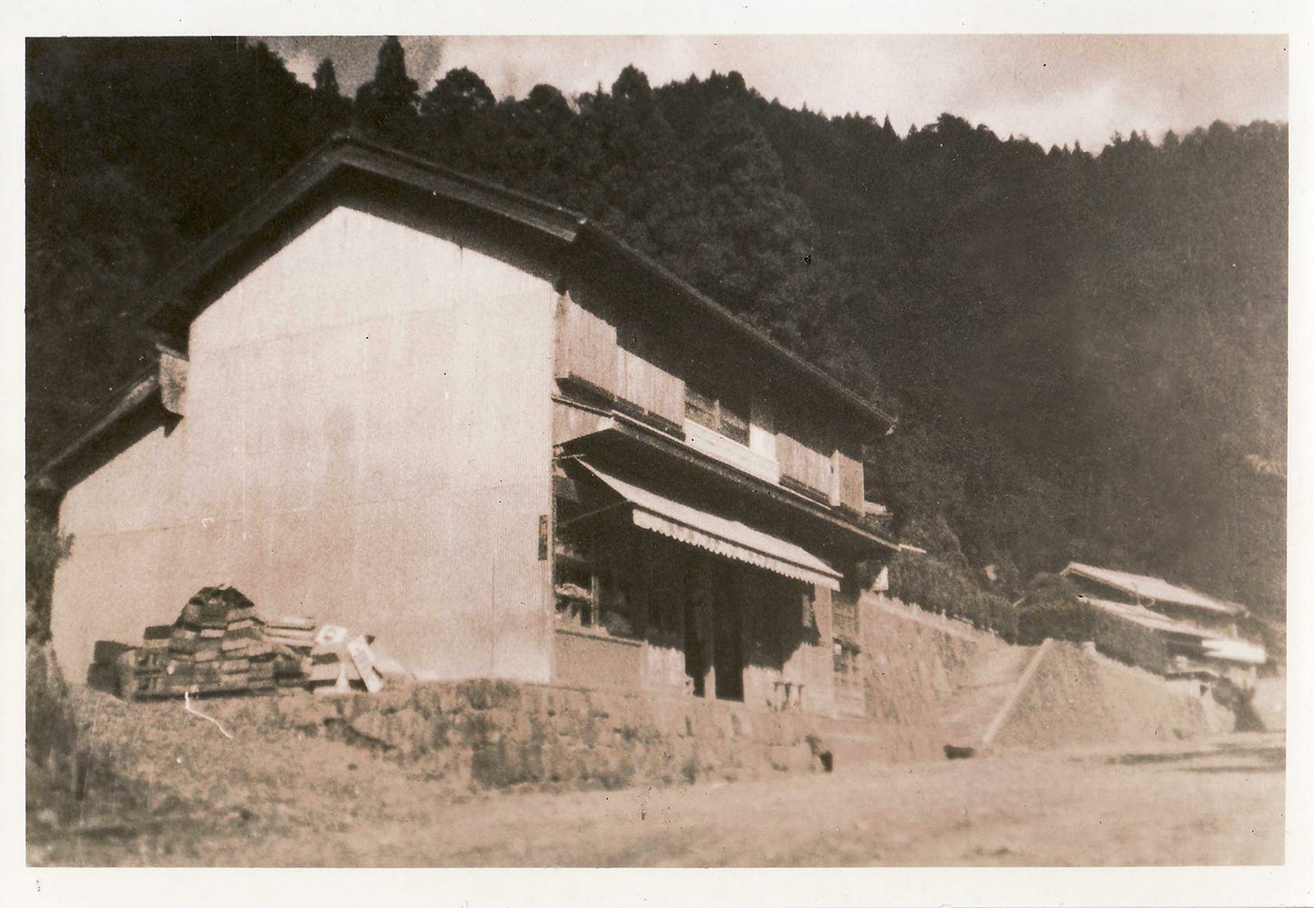
This story of a tiny store in the countryside brings up many memories of my childhood summer days in Japan. My family also owned a shoten general store. The shoten, not unlike other building structures of its time, had the store on the first floor and the family’s house on the second floor. In the early morning, as kids, my sister and I would run downstairs into the shop and pick up whatever we wanted for breakfast—from individual cartons of milk or yakult, plastic-wrapped onigiri, sandwiches, and little fruit cups. We would show our mom what we picked up and she would write it down on a piece of paper for my uncle who managed the shop.
In the mid-1970s, Japan redefined the concept of convenience with an overhaul of the traditional mom-and-pop corner store, like my uncle’s, into 24-hour retail operations now known as combini. To my disheartenment, this losing a lot of character. Kamikatsu, to my pride, doesn’t have any combinis. I’ve written about this before, but the lack of convenience is one of my favourite things about the countryside—it makes us creative, resourceful, and self-sufficient.
But back to the mountain cafe…
Stepping into Ishimoto-san’s cafe, Cafe Ikumi, is stepping into a bygone era. Relics of the Showa era (1950’s-1970’s) transport me to a place I’ve never been. The Showa era was a period of Japan characterized by rapid change and economic growth. Japanese people turned their gaze towards America and there was a dramatic change in fashion, culture, and music.
I had a glimpse of this time seeing the stuff my late grandma collected. She also owned a a karaoke or snakku snack bar, which you can say is a kind of pub. Her shop was swirling with mystery since it was off-limits for us as kids when it was open at night. In the morning we could visit, only to see remnants of the night before—tables yet to be cleaned, dishes that needed to be washed, an ashtray with the butts of cigarettes. The decor in the stop felt dark, dated, and retro. I don’t remember so much—only the feeling that this was a place that must have come alive during the night and in the morning that glow faded.
My late grandmother was eccentric and quirky. She insisted on wearing kimonos as often as she could and powdering her face with lots of makeup and red lipstick. She was a collector and a hoarder of things. Maybe all these things were byproducts of her youth shaped in the Showa era.
And again, back to the cafe…
I have a quiet admiration for people who are collectors of things like Ishimoto-san. Collectors have an unconventional way of viewing the world and a deep interest in one or a few things. Wherever you look in the cafe, Ishimoto-san’s records are on display, and songs are rotated on vinyl (playing was さよならの夜明け (sayonara no yoake) by Mariya Takeuchi to set the vibe).
My partner is a patron of the cafe and visits nearly every weekend. He’ll often cycle over and try to have conversations with Ishimoto-san. With a language barrier, simple words and gestures are strung together to make a conversation. He’ll come home and tell me an interesting fact about Ishimoto-san that I never knew. Since he’s become a regular, I find myself joining him at least once a month—mostly on days it’s good weather and I can cycle too.
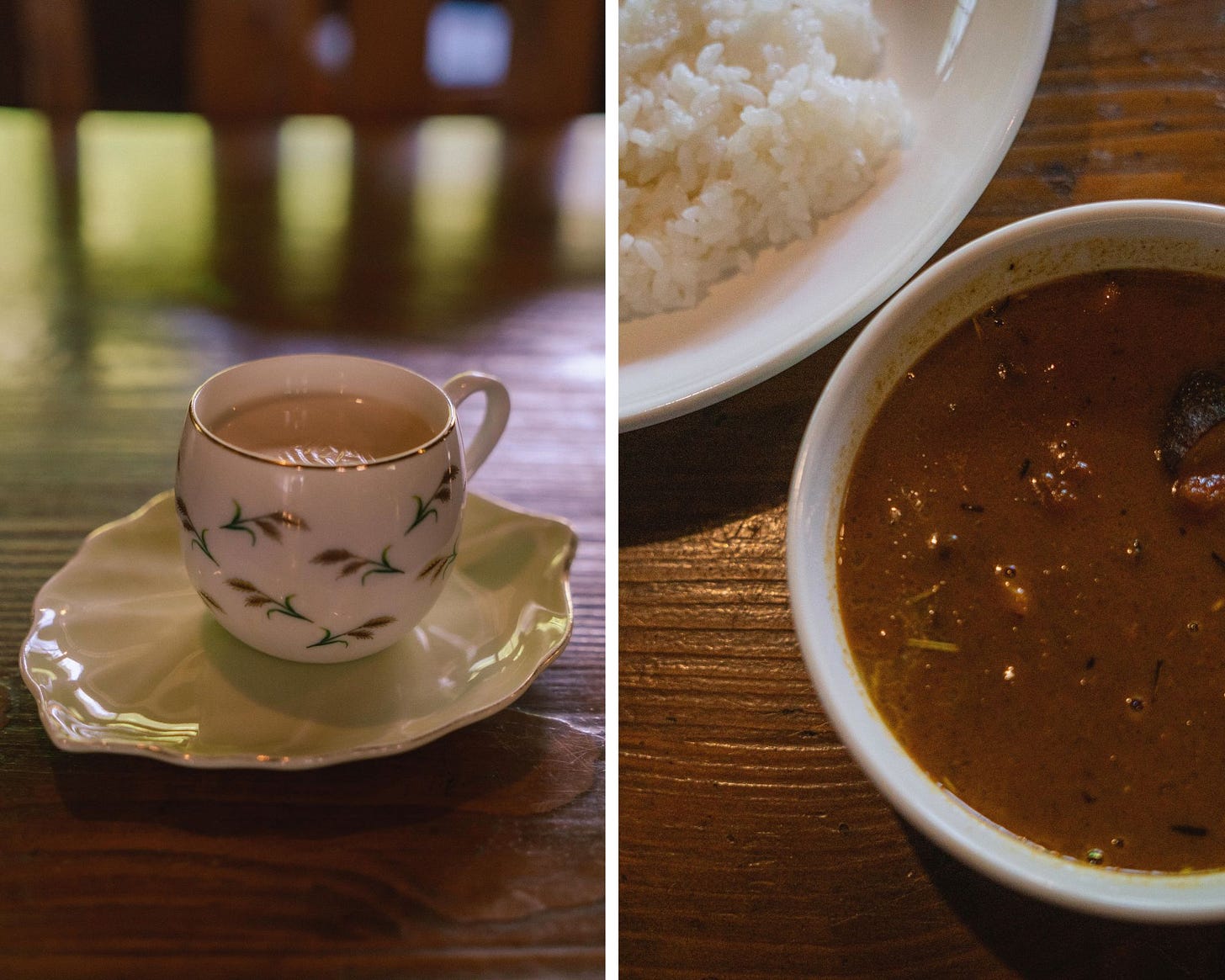
The cafe has a basic menu, with very few changes. There are a handful of curries with similar bases and small variations. It’s easy to have a “regular” order. The other day we visited the cafe, and we surprised him by deviating from our regulars. There is such an ease to entering this space, probably because it’s a place that not many tourists go to, so there’s a higher chance of running into locals or having the space for ourselves. Maybe stepping into the “past” makes time feel slower, or maybe it's that the cafe is located next to a river so the sound of gentle streams and wind rustling in the leaves makes it easy to lose a sense of time.
Hilariously, and true to the beat of his unique character, there is an ongoing project called ‘Sing a song and get a curry’, which is exactly what it sounds like. If you join Ishimoto-san who plays the guitar and you sing a song, he will give you a free curry. Your choices for songs are only Marigold by Aimyon or a song that Ishimoto-san can play on the spot—limited options like the food, but a wonderful exchange if you take him up on the offer. If you find yourself in Kamikatsu, well off the beaten path, then I recommend visiting Ikumi Cafe.
In the coming weeks, I’ll share my experience of planting rice and my umeboshi pickled plum project—where I’ll be testing different salts and methods of pickling, stay tuned!
About a month ago I had my first in-person encounter with someone who reached out to me through Substack. I’m grateful for these encounters. Thank you, E for your visit to Kamikatsu!
I was also featured on a list of Japan-based Substack by
. Since I’m very inconsistent with writing, if you are curious for more insight on Japan, check out the list he’s curated. Thank you for the kind words, Daniel!Have a wonderful week ahead.
With love,
Kana





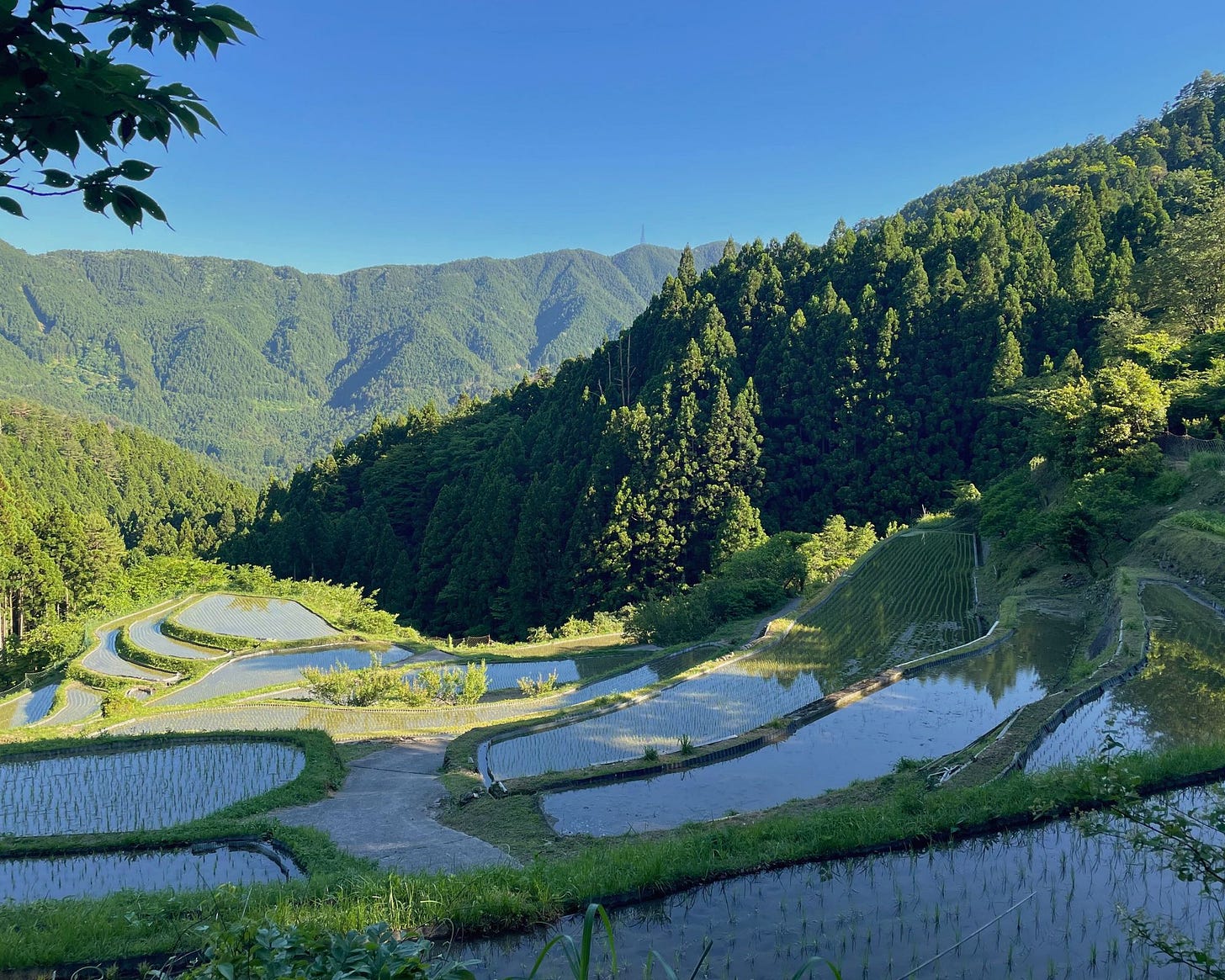

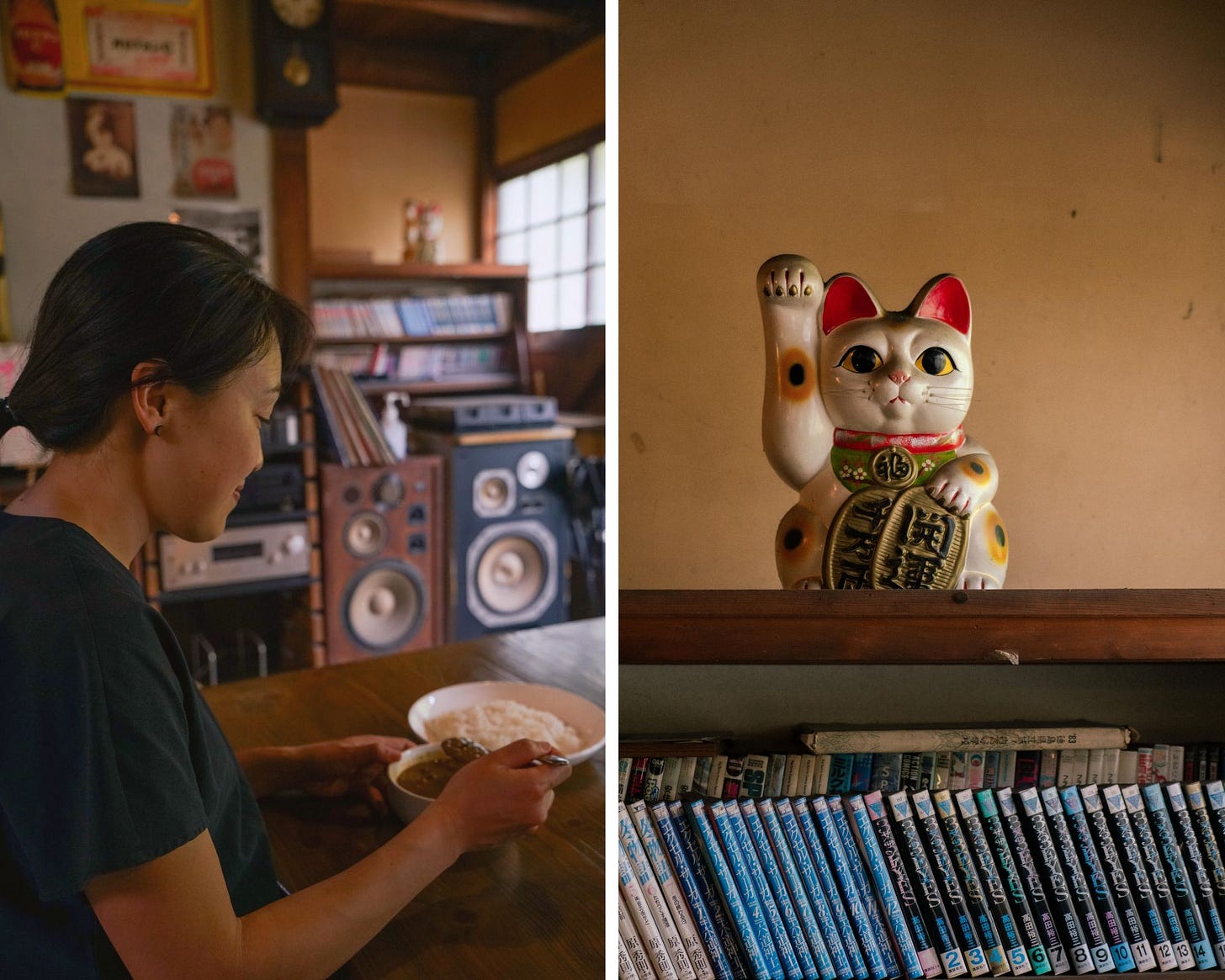
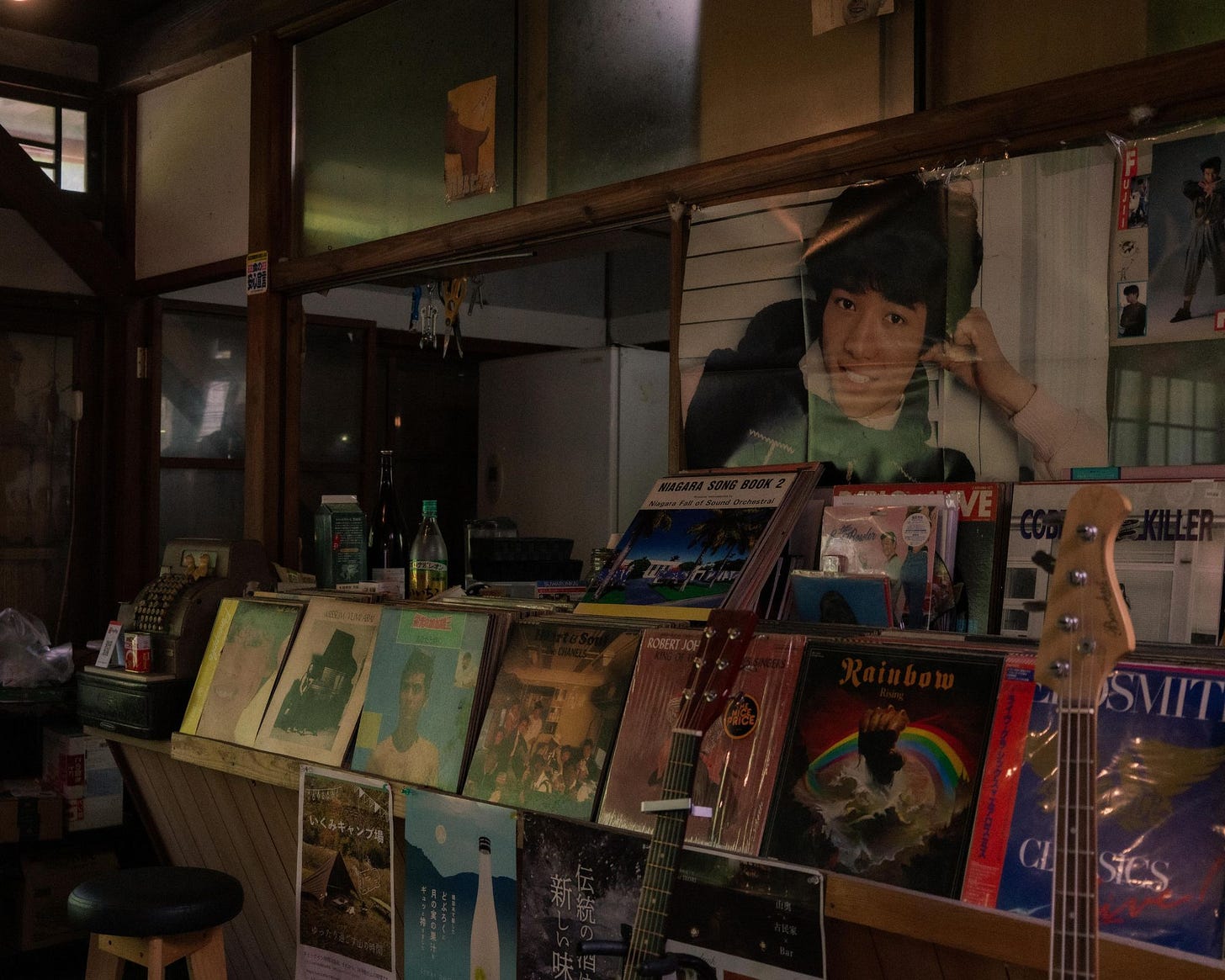
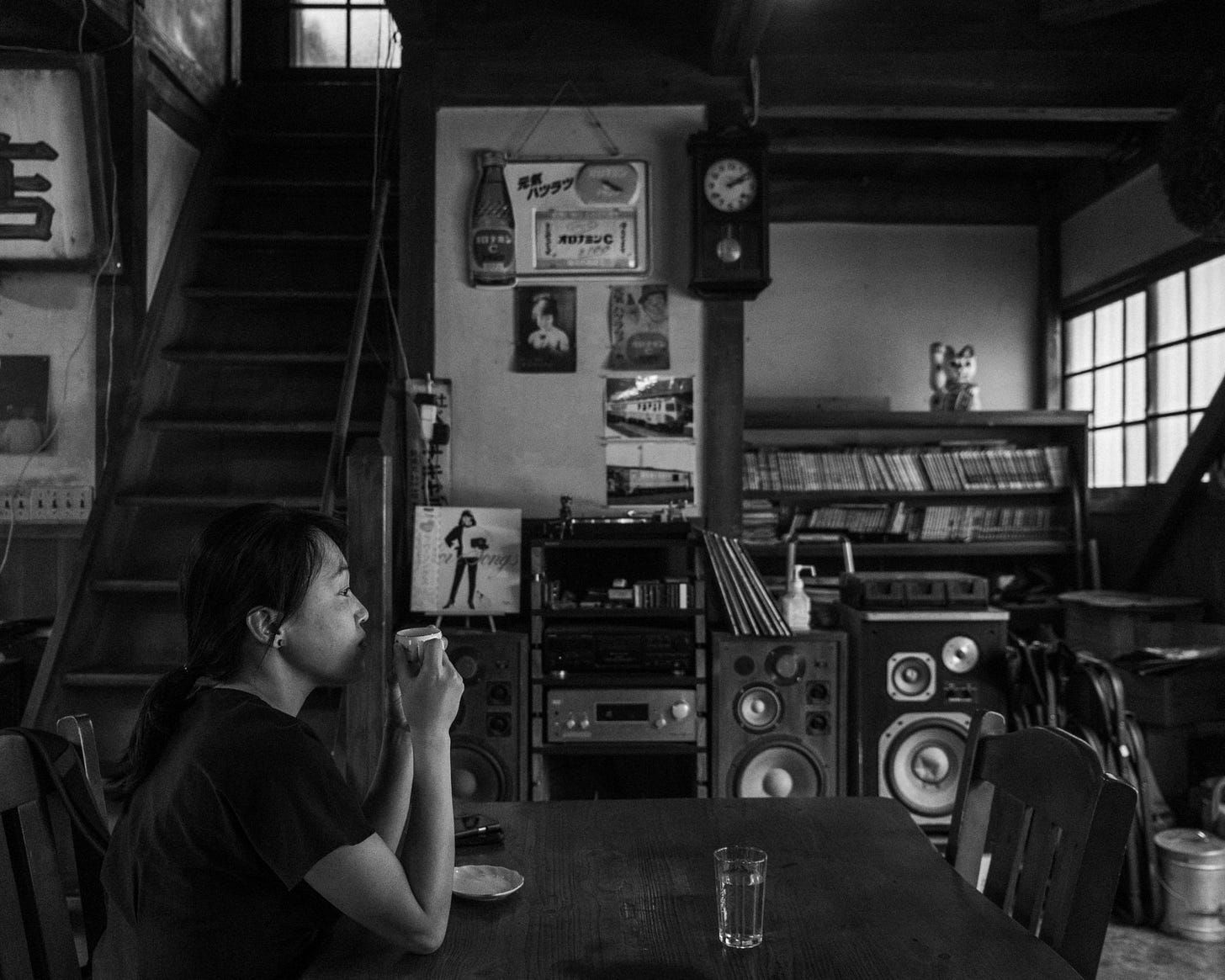
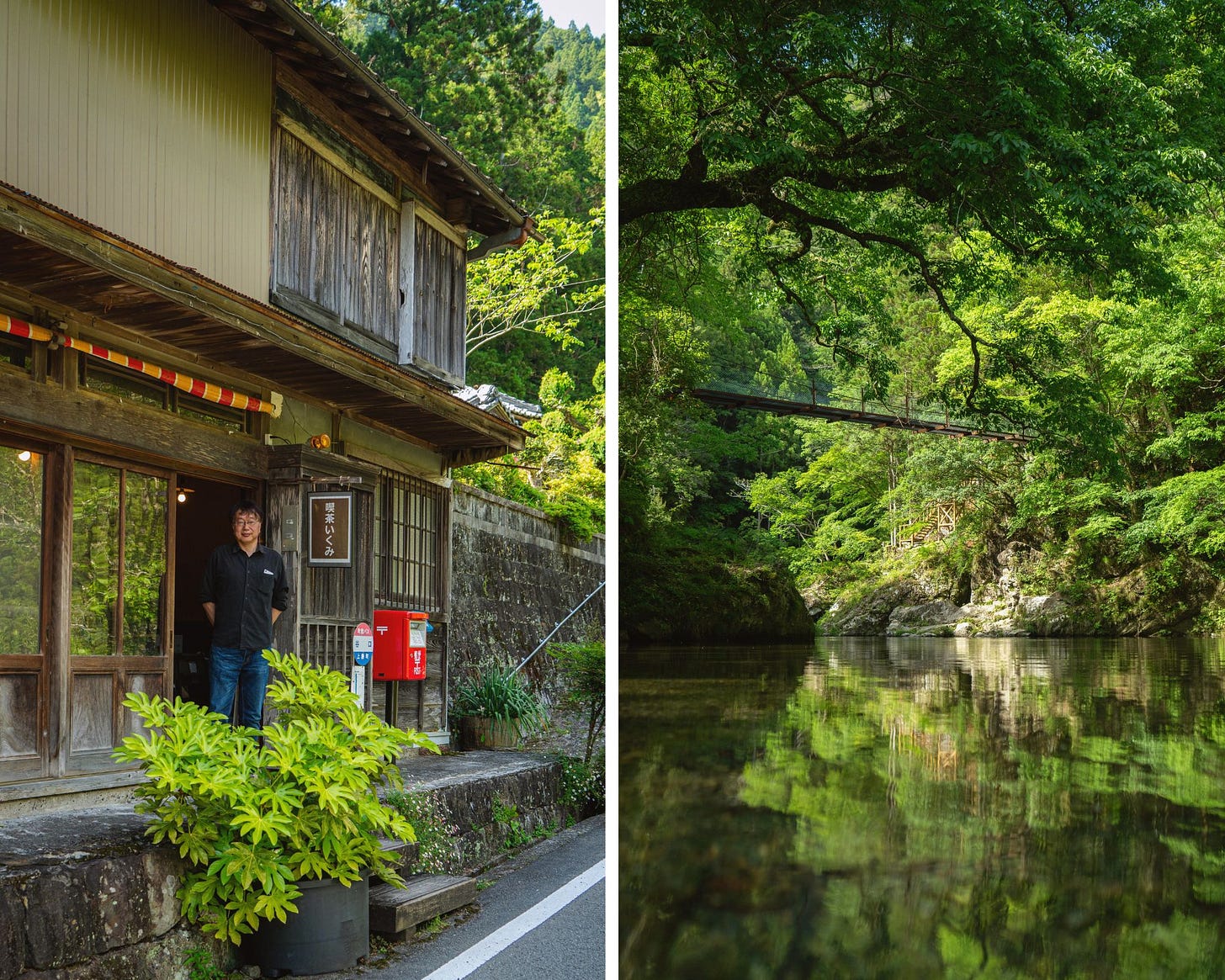

Thank you for the deep sense of romance you write into every post!! I cite Finding Joy regularly at work and your substack is certainly a great source of joy for me every time you post ❤️ I hope to participate in the Song and a Curry project someday very soon 🥰
Your photo of the rice fields is beautiful. It really does look like the water and the mountains and the sky meet in those fields in that light.